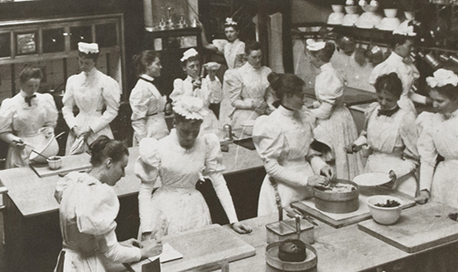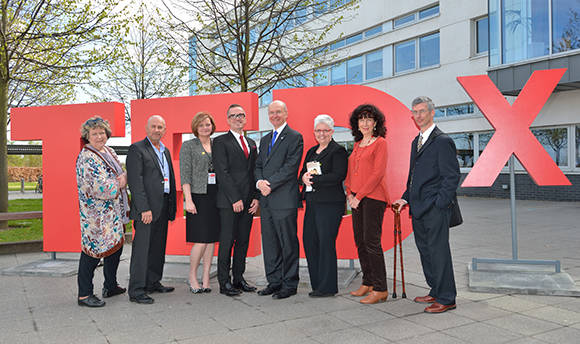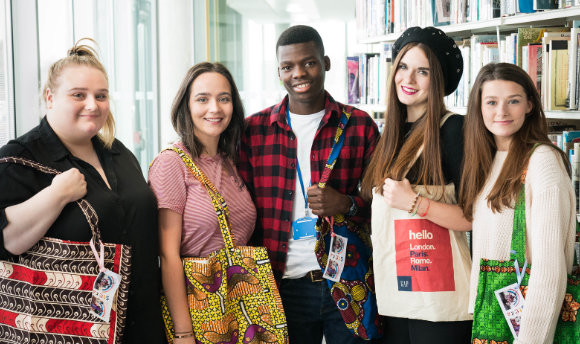QMUnity Allotment
We launched our QMUnity Allotment in 2011 with the aim of providing an accessible place for students, staff and the surrounding community to grow fruits and vegetables.
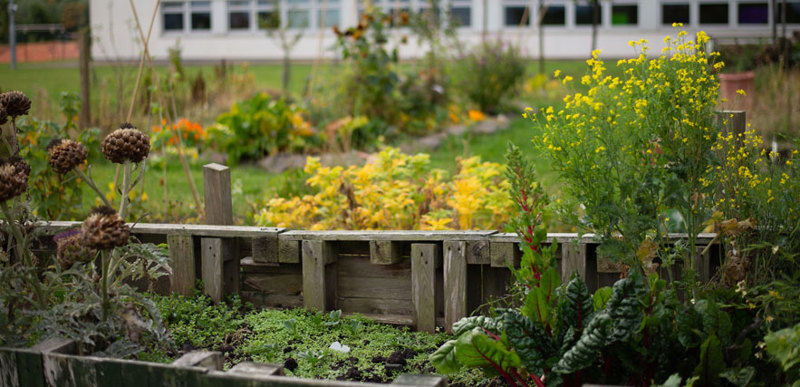
Lindesay Irvine, a former senior lecturer in Nursing at QMU, set to work developing the allotment, which is situated in the grounds of the campus, along with other invested staff members. The creation of the allotment was in keeping with our ongoing commitment to sustainability, community involvement and making a positive difference.
As interest in the allotment grew, so did its size. Soon, students, staff and members of the community were adopting plots, including Neil Forbes, the Chef Patron at Cafe St Honore, a restaurant in Edinburgh that uses fresh Scottish produce.
Prospective members were asked for a small sum of money, related to the size of plot they desired, to allow some purchases and the hire of a grass stripping machine. Later, a hut was donated for storage of equipment and compost bins were constructed from unused delivery palettes.
The diversification of produce that has been grown in the allotment has increased significantly over the years. Raspberries, different types of currants, potatoes, lettuce, cabbage, herbs such as rosemary and mint, and even an aubergine have all been grown, as well as apples, pears and cherries in the wider orchard. We also support pollinators, with some members planting flowers in their plots. We recycle and repurpose materials, composting onsite and enriching the soil, growing produce all year round, creating a space that sparks curiosity and joy in people (and dogs) walking by.
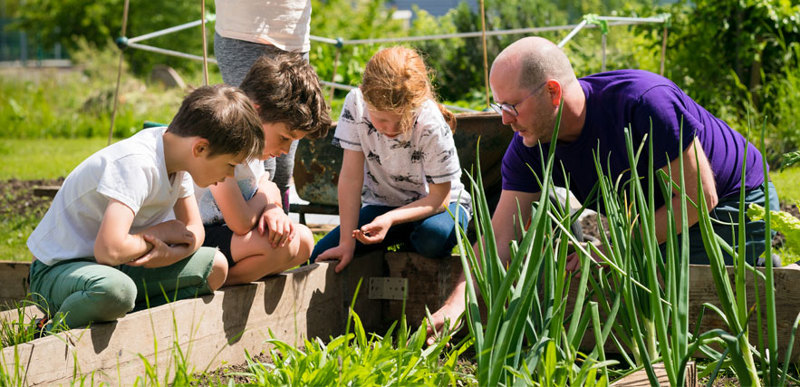
The QMU community garden, of which the allotment is a part, now affords staff and students the opportunity to carry out research into the importance and value of access to gardening-related activities. Occupational Therapy, Education, Dietetics and Nutrition students have been offered activities in the garden to support their studies. Local schools have also visited the garden as a way of encouraging commitment to local food production, healthier lifestyles and wider educational opportunities.
